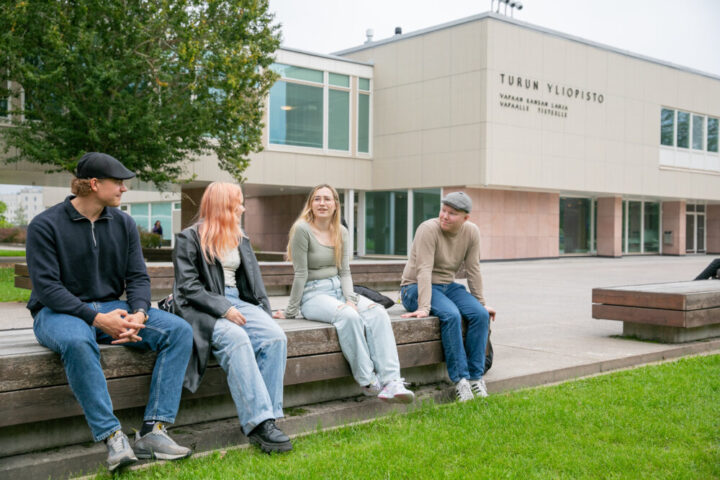KOHTI project builds a new model for learning Finnish through a learner-centred approach and everyday spoken language
A new project has been launched at the University of Turku to support the integration of international talents into Finnish society and working life. Emphasising everyday spoken language and learners’ individual linguistic backgrounds, the project offers a new approach to Finnish language education and learning.
___________________________________
The project (in Finnish: Kielen Oppiminen Hyvinvoinnin ja Tulevaisuuden Investointina, KOHTI) focuses on language learning as an investment for well-being and the future. KOHTI is rooted in concerns about the brain drain as well as a strong commitment to supporting the employment and everyday life of international talents in Finland. Proficiency in Finnish is currently one of the key factors influencing whether international experts choose to stay in the country after graduation. The project therefore aims to contribute to strengthening the security of supply of skills and regional retention of talents.
Launched at the beginning of 2025, the KOHTI project initially focuses on developing the Finnish language skills of international doctoral researchers at the University of Turku. The new model, developed and piloted at the University, is intensive, grounded in phonetic expertise, and tailored to the learners’ individual backgrounds. The aim is to make language learning a natural part of researchers’ work, which is why they will be able to participate in the courses during working hours. The first courses will begin in autumn 2025.
Teaching that takes into account learners’ backgrounds helps to identify needs
The phonetics experts at the University of Turku play a key role in the project as their expertise ensures that the language backgrounds of the participating researchers are reflected in the teaching. This enables a learning experience that caters to each learner’s individual needs.
“We don’t teach Finnish in a generalised manner. Rather, we focus on the specific language that the participants need in their everyday lives and work communities. This approach is similar to a flipped classroom in that the content is based on each participant’s background and needs. The teaching methods are also developed based on participant feedback and phonetic research carried out during the pilot,” explains Project Manager and Postdoctoral Researcher Katja Haapanen.
Although the KOHTI project is firmly rooted in phonetic expertise, it also brings together experts and stakeholders from other fields at the University of Turku. The multidisciplinary and intersectoral team collaborates closely with, for example, the Centre for Language and Communication Studies. The project also seeks to develop tools for employers and organisations to better support language learning in diverse workplace settings that extend beyond the university. In the future, the goal is to further develop language learning with the help of the University’s Professors of Practice and alumni.
Language education as part of regional talent retention
The model that is developed through the KOHTI pilot will eventually be made available to the broader University community and other organisations. The goal is to develop a scalable, high-quality concept that addresses the evolving needs of working life and society.
At the University of Turku, KOHTI is closely linked to broader efforts that support the integration of international experts in Finland. It complements projects such as UNICOM+ and other ongoing development initiatives. According to the University’s Vice Rector Maija S. Peltola, strengthening regional attractiveness and talent retention requires multidisciplinary collaboration across internal units, as well as active dialogue with external stakeholders. The KOHTI project is an excellent example of this type of purposeful cooperation.
“Finland needs international talents. We must ensure that those who move here from abroad have the best possible opportunities to become part of our society and communities. Proficiency in everyday spoken Finnish plays a crucial role in this,” Vice Rector Peltola concludes.
